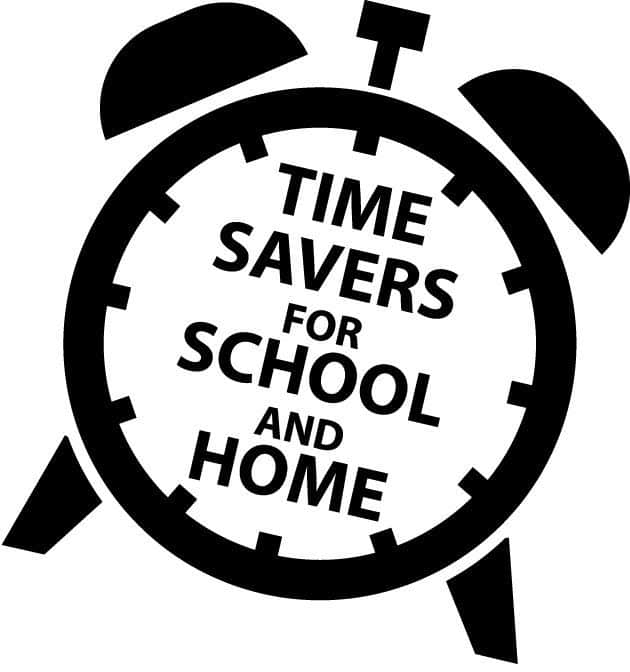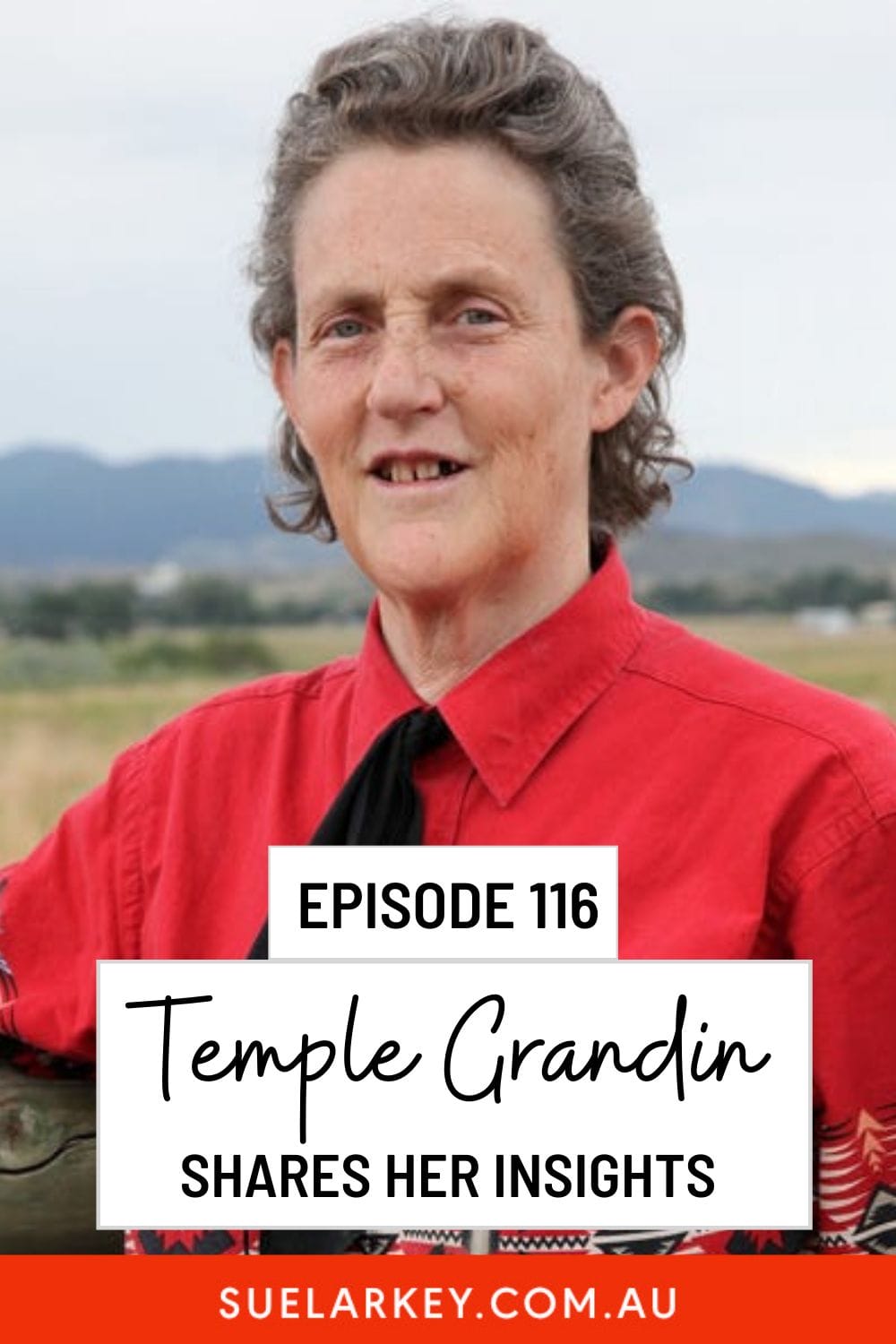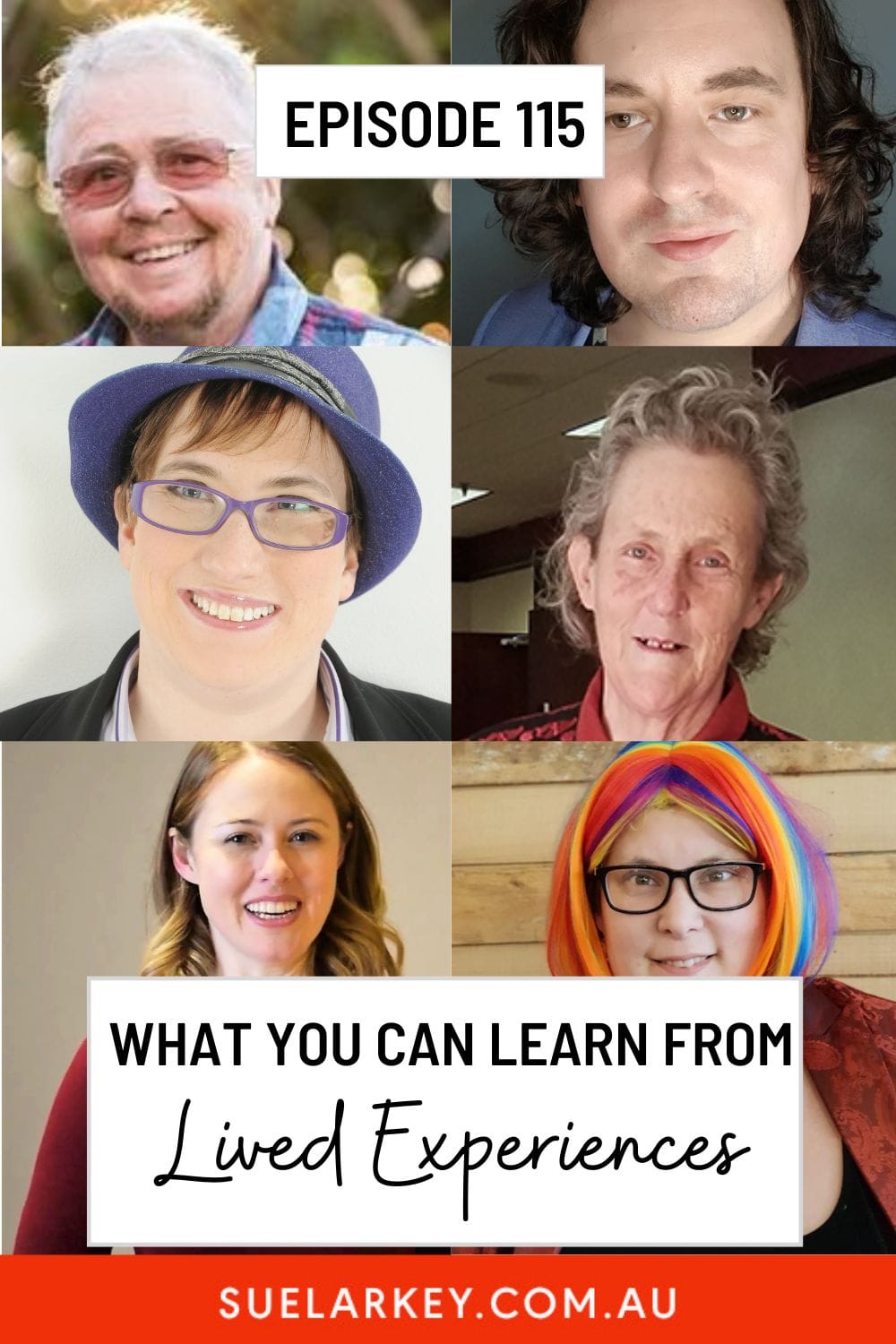Sue Larkey Blog
Helping you “Make a Difference”


Tips, Strategies, Time Savers and Inspiration to help make difference for a child with an ASD in your class, home or community.
Episode 124: Teacher Assistant Tips for Supporting Learning at School and Home – Your Questions Answered
TEACHER ASSISTANT TIPS FOR SUPPORTING LEARNING AT SCHOOL AND HOME - YOUR QUESTIONS ANSWERED Learn about Valuable Teacher Assistant Tips Today! Subscribe to this podcast via your favourite app Join my newsletter for more awesome information about ASDWhat you can learn in this podcast ✅ Swearing - What you can do? ✅ Motivating & Stretching students ✅ Building Rapport with students & what to do if they don’t want help ✅ How to frame things in positive ✅ How to reduce overwhelm ✅ How to engage students in lockdown / learning from home ✅ How to build confidence and accept making mistakes This podcast includes the answers to these questions asked by you! Don't forget to sign up to the Sue Larkey Podcast Community to ask your questions! Discover Teacher Assistant Tips Today! Teacher Assistant Course Part 2 “Understanding and Meeting the Needs of Neurodiverse Students” If you have already completed the Teacher Assistant Course - please check your emails for access to NEW Free...
Episode 123: Make Learning FUN – Using Cooking to Teach at School and Home
MAKE LEARNING FUN - USING COOKING TO TEACH AT SCHOOL AND HOME Discover Using Cooking to Teach Today! Subscribe to this podcast via your favourite app Join my newsletter for more awesome information about ASDUsing Cooking to Teach Cooking is a daily activity for everyone. It is a wonderful activity to teach ALL ages and stages. Cooking is an activity families, schools, community groups – indeed anyone can do it – and it provides long term recreation and independent living skills. Through cooking you can teach all curriculum areas (see below). By providing a structured programme with goals/learning outcomes you can develop a cooking programme that addresses the learning style and needs of the individual student. One child may use the programme to learn to read while another may use it to communicate, using visuals.10 Ways to Use Cooking to TeachHere are some examples of how cooking can be used to teach a wide range of skills at both school and home:Sequencing: cut up recipes and get...
Episode 122: Why Change = Behaviour – and what you can do about it
WHY CHANGE = BEHAVIOUR - AND WHAT YOU CAN DO ABOUT IT Discover Why Change Equals Behaviour Today! Subscribe to this podcast via your favourite app Join my newsletter for more awesome information about ASDMany children with ASD have difficulties accepting change and transition from one activity to another. In fact, most behaviour happens during change/transition. In my experience this is because it requires problem-solving, choices and adults tend to use more verbal information instead of visual information. It can also be a time of movement and high noise level, which can cause sensory processing difficulties. Below, I have listed some key times you may need to put in place strategies to support children during change. Discover why change equals behaviour today!n Transition Example Activity / Behaviour Structural Change Routine Change Pack away / finish activity Give five minute warning. Use a Time Timer so can visually see ‘how long’. Use a visual schedule that shows...
Episode 121: Love on the Spectrum – Sex Therapist shares her Tips
LOVE ON THE SPECTRUM - SEX THERAPIST SHARE HER TIPS Learn more about Relationships on the Spectrum and how to help your loved ones today! Subscribe to this podcast via your favourite app Join my newsletter for more awesome information about ASDHave you been watching Season 2 of Love on the Spectrum? I love the show, and it's such a good insight into the difficulties people with autism can face in the dating world. To take a closer look, this week on the podcast I'm joined by Counsellor and Sexologist from the show, Jodi Rodgers. What we discuss in this episode: ✅ What needs to be changed in the current sex education programmes in schools ✅ Step by step ways we can support kids on the Spectrum with having relationships “Girlfriend/Boyfriend/Partner” ✅ How do we support and respect Autistic students to guide them through the ups and downs of relationships? ✅ How Jodi uses interests/knowledge to explain how to build relationships, i.e. “Clark Kent & Superman” ✅ How to quickly...
Episode 120: Strategies & Insights to Inform your Teaching Practice with Temple Grandin and Sue Larkey
STRATEGIES AND INSIGHTS TO INFORM YOUR TEACHING PRACTICE WITH TEMPLE GRANDIN AND SUE LARKEY Improve Your Teaching Practice Today! Subscribe to this podcast via your favourite app Join my newsletter for more awesome information about ASDThis FREE Ebook and Webinar are focused on Teaching Students with Autism Spectrum - Strategies & Insights to Inform your Teaching Practice with Temple Grandin and Sue Larkey. They are designed for Educators to use lived experience and evidence-based research to increase engagement and participation for their students with Autism Spectrum. The free Webinar is also the first lesson in my BRAND NEW Temple Grandin and Sue Larkey Course - check it out if you enjoy the Webinar! Another FREE E-book with 100+ Tips & Strategies! Download the free E-book so you can read along while I explain in this week's Podcast. What you will learn: An Inspirational Story: Strategies Behind Temple Grandin’s Amazing Successful Life. The 9 Compelling Reasons...
Episode 119: Webinar Replay – Sensory Strategies for Educators – the often Overlooked Causes of Behaviour
Webinar Replay - SENSORY STRATEGIES FOR EDUCATORS - THE OFTEN OVERLOOKED CAUSES OF BEHAVIOUR Unlock Sensory Strategies for Your Classroom Today! Subscribe to this podcast via your favourite app Join my newsletter for more awesome information about ASDMy Live Virtual Webinar last week was a success! But it's not too late if you missed it - sign up HERE to watch the Replay of the hour of power! Available for a limited time FREE sign up includes: E-book Webinar Replay Handout What will you learn in the Webinar? 🌟 What Role do Sensory Solutions have in De-escalating Behaviour & Increasing Participation?🌟 Benefits of a Simple Sensory Programme in your Classroom🌟 What is SPD?🌟 How to Identify Students who could have SPD🌟 Checklist to Identify Underlying Sensory Causes of Behaviour🌟 The MOST Overlooked Sensory Tools & How to use🌟 Quickfire Solutions to Implement this Week Unlock Sensory Strategies for Your Classroom!Join me for a Live Workshop this term!"I love the...
Episode 118: Sensory Strategies for Educators to Increase Engagement in a Busy & Complex Classroom
SENSORY STRATEGIES TO INCREASE ENGAGEMENT IN A BUSY AND COMPLEX CLASSROOM Subscribe to this podcast via your favourite app Join my newsletter for more awesome information about ASDTeaching in a busy and complex classroom can be very difficult, but this term I have collated my top Proven Sensory Strategies to increase engagement and participation. A sensory focus is crucial to maximse class engagement, as well as to understand the often overlooked causes of behaviour. So I am hoping to help you with a New E-Book, Webinar & Podcast - ALL FREE - filled with quick tips and strategies to make sure your kids are getting the most out of the amazing work you do! I am also running live FACE TO FACE workshops again this term! Check them out below. Brand new FREE E-book with 100+ Tips & Strategies Download the free E-book so you can read along while I explain in this week's Podcast. What you will learn: ✅ Simple Classroom Adaptations That Make a Huge Difference to students and...
Episode 117: Top Tips for Teaching Children with Autism in The Early Years
TOP TIPS FOR TEACHING CHILDREN WITH AUTISM IN THE EARLY YEARS Perfect Early Years Teaching for children with Autism Today! Subscribe to this podcast via your favourite app Join my newsletter for more awesome information about ASDWhen working with any child with ASD it is critically important that the programme implemented is realistic, both for the child and for the family. By realistic I mean setting everyone up for (achievable) success and that everyone across all environments has the time to implement it. I believe the best way to create a realistic programme is to only address one or two ideas at any one time. I recommend in the early years you always have visuals of the goals you are working on in a prominent place (e.g. fridge or preschool office) so ALL people engaging with the child know the week’s two goals. Over the years I have found by displaying the goals ensures consistency and everyone creating opportunities to reinforce the goal. As children with autism spectrum...
Episode 116: Temple Grandin – one of Time Magazine’s Most Influential People in the World – shares her Insights into Sensory, Social and Behaviour
TEMPLE GRANDIN - ONE OF TIME MAGAZINE'S MOST INFLUENTIAL PEOPLE IN THE WORLD - SHARES HER INSIGHTS INTO SENSORY, SOCIAL AND BEHAVIOUR Learn about Sensory Processing Skills and Anxiety Today! Subscribe to this podcast via your favourite app Join my newsletter for more awesome information about ASDIn this podcast, I take inspiration from my exclusive interview from Temple Grandin - one of Times Magazine's most influential people in the world - and share her insights on sensory processing, social skills and behaviour. I discuss the amygdala and it's impacts on behaviour and sensory processing. Many people with autism - including Temple Grandin - have an enlarged amygdala, causing an increased emotional response to stimuli. Sensory tools can be a huge help - jump here for more information. Dive into Sensory Processing Skills and Anxiety Today! The Amygdala and ASD Have you heard of the ‘Amygdala’? Did you know it is thought that an enlarged amygdala could be causing anxiety, sensory...
Episode 115: What you can Learn from Lived Experiences of Autism and ADHD
WHAT YOU CAN LEARN FROM LIVED EXPERIENCES OF AUTISM AND ADHD Learn from Lived Experiences of ASD and ADHD Today! Subscribe to this podcast via your favourite app Join my newsletter for more awesome information about ASDWhen I first started working in Special Education 30 years ago I always sought out Personal Accounts of people with autism, as I found it so insightful and helped me understand the children I worked with. Lived experiences allow a valuable and genuine perspective that I find very eye-opening. There are lots of great ways to access information on lived experiences. Here are some of my suggestions to Learn from Lived Experiences of ASD and ADHD:1. Youtube There are many great channels out there. I follow Jessica McCabe who has an amazing channel on ADHD called "How to ADHD".2. Ted Talks So many fabulous ones and new ones coming out all the time. The button below brings you to a list in order of most viewed so if you are not sure where to start, this is an easy way to...
Episode 114: Making Friends and Being One
Making Friends and Being One Subscribe to this podcast via your favourite app Join my newsletter for more awesome information about ASDOne of the biggest myths about children with ASD is they all like being on their own. Children with ASD often desperately want friends, and in fact worrying about friends can cause them anxiety. Many children show this stress by becoming more withdrawn, which of course makes the situation worse. For students with ASD a little extra support may be required to create friendships. For instance, when teachers allow children to select their own partners, children with ASD often are left out. Instead staff should consider who will be a good partner/friend to the child and be pro-active in pairing them. Good examples of opportunities for schools to support friendships are in seating arrangements, partner activities and group work. Parents, I would encourage you to support the school by organising some out of school activities such as having children over...
Episode 113: How to Help Kids who Struggle with Handwriting
HOW TO HELP KIDS WHO STRUGGLE WITH HANDWRITING Listen to Start Helping Kids who Struggle with Handwriting Today! Subscribe to this podcast via your favourite app Join my newsletter for more awesome information about ASDMany children on the spectrum can have dysgraphia (see Podcast Episode 86 for more information). The Kids’ Guide to Getting Your Words on Paper by Lauren Brukner is an excellent resource that acts as a self-help guide to writing for kids. I would absolutely use this book with my whole class as it has great reminders of how to help students with their writing. Jump to: info for adults. Start Helping Kids who Struggle with Handwriting Today!My Top 5 Takeaways From The Kids' Guide to Getting Your Words on Paper by Lauren BruknerHand warm up exercisesMenu of writing strategies - big body stuff i.e. foot stool, exercise band, pencils, cushion and more!Importance of our eyes to make wiritng easier. Try different types of paper - colours, line sizes, even graph paper. One...











